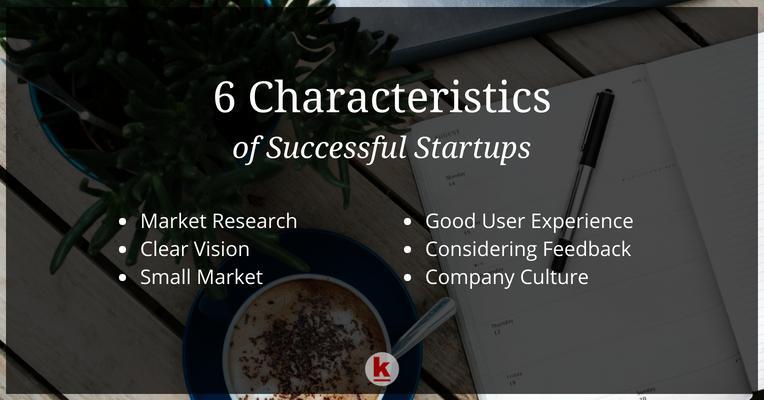There are many reasons for startup failure, however, in this article, we’re going to list the main reasons behind the success of startups.
Here are some characteristics of successful startups:

Market Research
Startups that carry out a detailed and thorough market research before setting up shop are more likely to succeed when compared to startups that dive into their business without carrying out a thorough market research. Market research helps startups become aware of the risks associated with setting up a business in a particular market.
As a startup owner, if you are well-versed with market trends, risks and opportunities, you are more likely to leverage these trends and opportunities to help grow your business. Having a good understanding of the market is important in order to take some business decisions. Not only does it give you a good insight into the current scenario of the market, but it also lets you cater to your target audience better, thus, improving your business and brand.
Keep your Vision Clear
It is essential for startup owners to define their brand mission and vision before starting their business. Why is this important? Because until and unless you are aware of what is it that your brand is trying to achieve, it will be difficult for you to plan out steps for your business to get there.
Everything your brand does must be aligned with the vision and mission of your brand. This includes everything from customer service, to the actual sale of your product, all the way till keeping in touch with your customers.
Target a Small Market
One of the best things you can do in order to become a successful startup is to target a small market. Large markets with well-established businesses and firms make for a very competitive environment. This environment has players with a lot more experience and knowledge and therefore is not the best for a startup to flourish.
Instead of promoting your startup to a larger market, consider marketing your startup to a smaller market initially. This will give you a good idea as to what your audience is in need of and whether they are willing to consume your products or services.
User Experience
Whether your brand is established or a startup, it is essential that you deliver a good user experience to your users. As a startup, it may be a little more difficult to deliver as good an experience as a well-reputed brand, but it is important nonetheless.
Instead of focusing on increasing the number of customers, your brand should focus on giving an unforgettable experience to your current customers. Focus on creating a genuine loyal customer who sticks with your brand for a long time. It may not increase numbers initially, but it does add a lot of value to your brand.
As long as your customers are happy and satisfied with your products or services, your startup is on the right track.
Consider Feedback
One of the most important things a startup can do is consider and collect detailed, honest and valuable feedback. For a startup, the most important activity in the initial stages should be that of fine tuning the products, services and experience offered to its customers.
The bottom line for success for any brand or business it the quality of the product or service offered by it. If your product or service is not up to the mark, your business is likely to fail. That’s why it is important to make sure your product or service has reached its optimal state.
Considering feedback in a positive manner can help you improve your products and services for your own customers. This will also make sure your customers respect you for considering their feedback seriously.
Company Culture
Many startups believe that focusing on work all day is bound to give out better results. But this is not the case.
As a startup owner, you must understand that successful entrepreneurs often invest in culture building activities within the organization to grow a sense of comradery. These fun-filled activities help in boosting the participation level of the employee thus affecting the intensity and the productivity of an employee.
Some ideas for building startup culture are organizing brainstorming sessions on generic topics, creative activities like skits or JAM (just a minute) sessions.
Another way to encourage your employees is by rewarding their efforts are rewarded, which gives an immense push to the employee’s morale and confidence. This, in turn, has a direct impact on other employees who would strive for the appreciation.
To become a successful startup, what you require is an idea that is of utmost need in the market. Apart from this, the marketing strategy and other points discussed in the above article are common for all the successful startups.
Hope by now you know why startups succeed and the characteristics that are common to all the startups that succeed. If you think we missed on some points, let us know in the comments below!



Leave your comments
Post comment as a guest